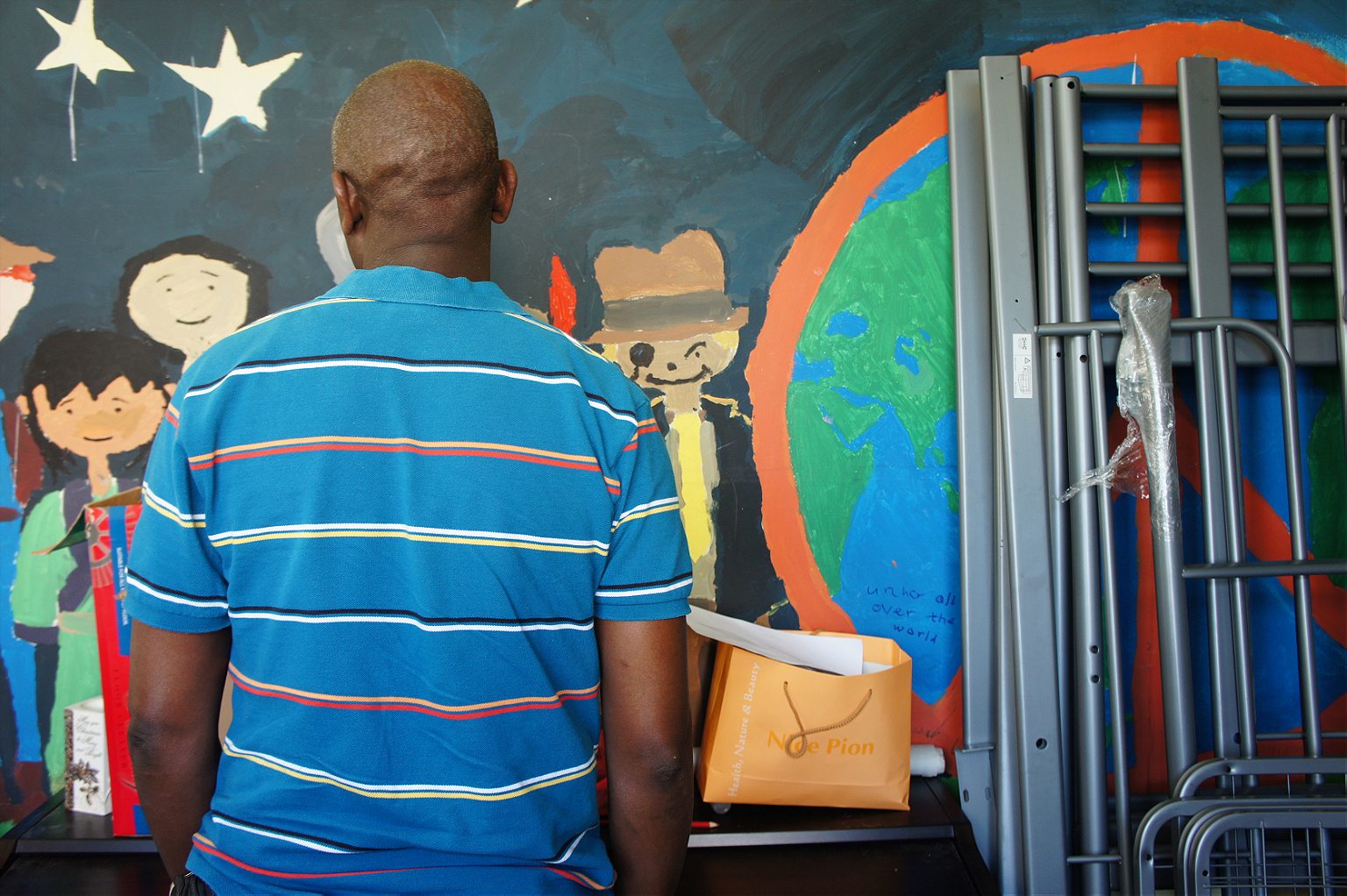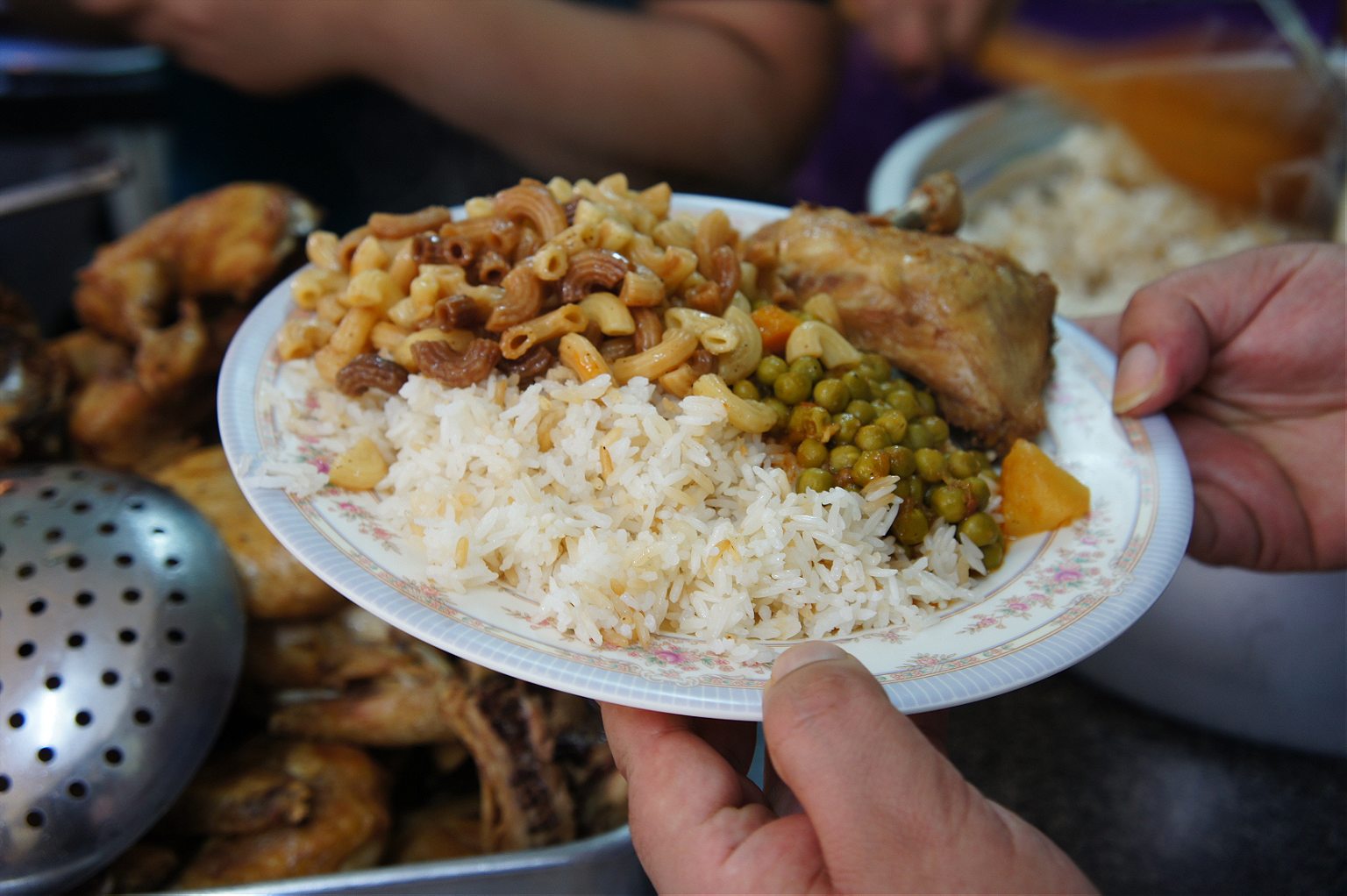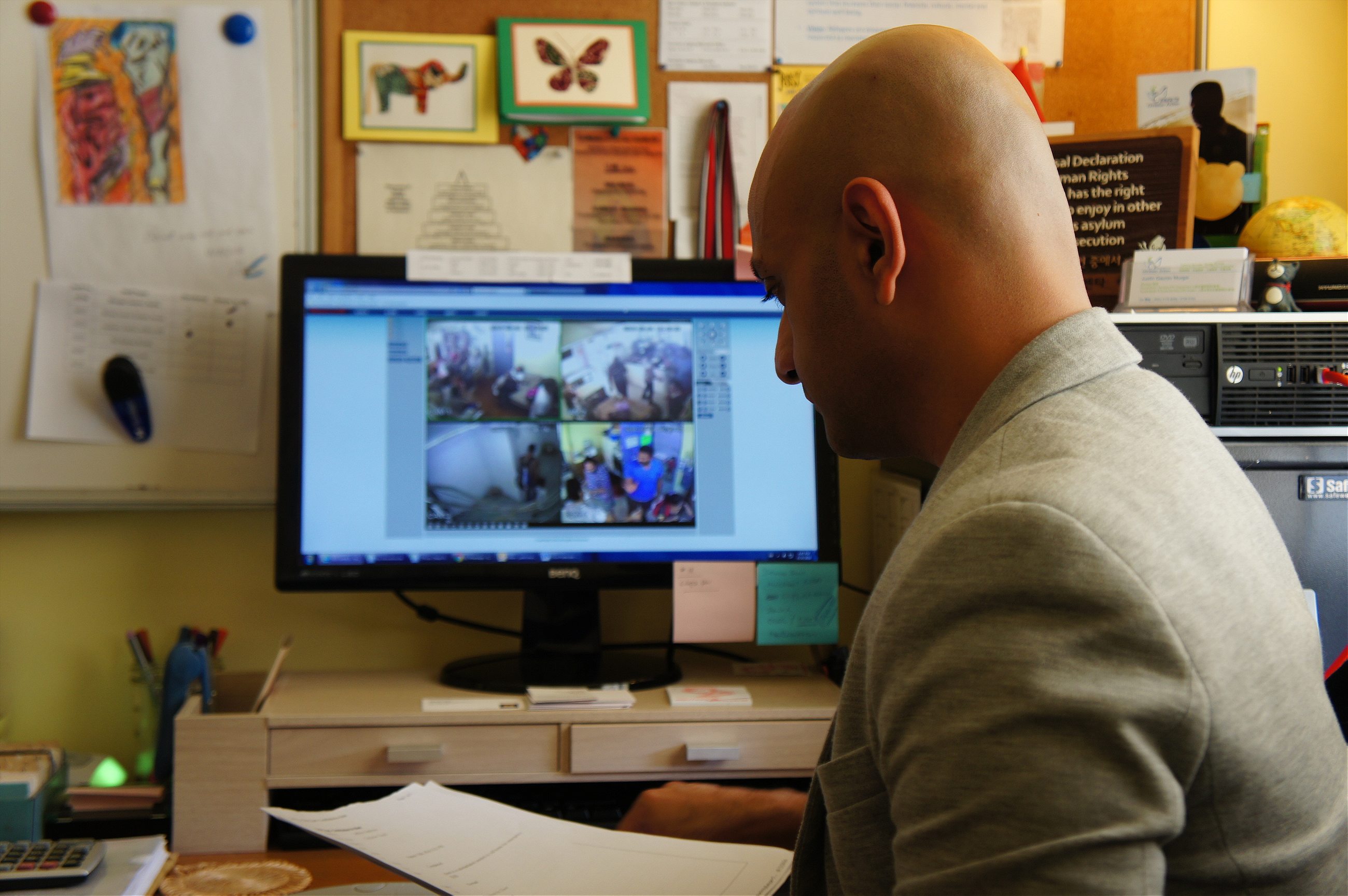Refugees in the city face police persecution, endless red tape, and a public that increasingly loathes them.
On a sticky, summer day more than a decade ago, Daniel, a human rights lawyer in an East African nation, was walking out of church after a regular Sunday service when he was approached by a friend working for the government who told him he had only two hours left to live. Daniel had not only defended political prisoners—an enormous risk in his volatile country, which was on the brink of civil war—but he’d been openly fighting against the politicians who were trying to stall a new election. He had now become an immediate target for assassination.
Daniel decided to flee. He said goodbye to his wife and five children and began the long journey to a new life as an asylum seeker. The plan was to go to Australia, but Daniel instead ended up in Hong Kong.
When he first set foot in Hong Kong, immigration officials wouldn’t allow him to shower for five days. After being released, his new life in the Asian metropolis consisted of a constant cat-and-mouse game with the Hong Kong police. He and other asylum seekers would pack up their belongings each morning and stay in Kowloon Park, a green oasis in one of Hong Kong’s most densely packed shopping centers, until police arrived, at which point they’d decamp again. Refugees slept in the streets and bathed themselves over dirty public toilets.
Life has always been hard for refugees in Hong Kong; today, it’s taken a turn for the worse. Now, instead of playing hide-and-seek with beat cops, Daniel and others like him are facing a government—and local media—that is trying to label the city’s asylum seekers as violent criminals.
Hong Kong, one of the most crowded cities on earth, is on the verge of its own mini-refugee crisis. There are about 11,000 refugees waiting to be “substantiated,” or officially recognized and granted legal status, by Hong Kong’s Unified Screening Mechanism (USM), a system introduced two years ago to expedite asylum claims but which has been accused of doing just the opposite. Conservative politicians are now deriding the situation as a “fake refugee problem,” are advocating for internment camps, and accusing asylum seekers of being criminals.

A reserved man who wears a gold cross dangling over the buttons of his polo shirt, Daniel is one of some 200 substantiated refugees in Hong Kong. (Daniel’s name has been changed and his country of origin omitted to protect his identity.) His legitimate status as an asylum seeker means he’s allowed to stay in the city until it’s deemed safe for him to return to his home, or the United Nations finds him a new country to live in; Daniel has been waiting 12 years for an appointment with the U.N. to discuss resettlement.
In recent months, police have become more aggressive and a slew of negative media reports and ramped-up, anti-refugee rhetoric from Hong Kong’s government is keeping scared asylum seekers in hiding. While the government hasn’t yet made any firm decisions, it’s a real possibility that Hong Kong will follow mainland China’s example and no longer offer any protection for asylum seekers.
Prominent refugee advocacy groups in Hong Kong believe that the core of the issue is public spending: as prices in overcrowded Hong Kong skyrocket, conservative lawmakers are demanding a halt to any government spending on refugee assistance.
Victoria Wisniewski Otero, the Advocacy and Campaigns Manager of Justice Center Hong Kong, a local group that provides legal assistance for asylum seekers, says the number of government anti-refugee press releases soared in the months before the elections for Hong Kong’s legislature in September.
For these people, life is little more than languishing in boredom; they don’t have the right to work or even volunteer. Many live packed into tiny apartments or in tin-roof slums on rural edges of the city. Since they are not allowed to earn money, they receive a small monthly allowance from the government of about $375 USD, which carries numerous restrictions. The money comes in the form of $155 cash coupons for food at the city’s ParknShop supermarket, and a money transfer of about $195 directly into a landlord’s account. About $25 is left to put onto a transportation card. In one of the world’s most expensive cities, that doesn’t go far.

Refugees must reapply for assistance every month with International Social Services, where they must wait for hours to go through all the paperwork again. “We’re not allowed to control our own lives and we feel useless,” Daniel says.
Daniel’s life has become so miserable that he borders on despondent. He calls his wife and children at home at least once a month, but it’s been so long since he’s seen them that he can no longer distinguish his children’s voices from one another. “If you haven’t seen your children for more than 10 years, just imagine—I’m afraid to name them because I might make a mistake.”
Conservative lawmakers increasingly tow the hardline of the Chinese government in Beijing, which has no protocols for accepting asylum seekers. The pro-government media’s negative coverage of asylum seekers—who mostly come from the Middle East, South Asia, and Africa—has started to turn public opinion.
Hong Kong’s leader Leung Chun-ying suggested in his January policy address that the city pull out of the U.N. Convention Against Torture. In March, prominent lawmaker Regina Ip Lau Suk-yee said the Hong Kong government should create detention camps for “illegal” refugees just over the Chinese border in Shenzhen.
Last year, the terminology in official press releases marked a dramatic shift in the government’s tone toward refugees. While once officially referred to as asylum seekers—a term that carries with it legally binding governmental obligations and protections—they’re now referred to as “illegal immigrants,” says Justin Gaurav Murgai, an advocate at Hong Kong’s Christian Action.

Christian Action’s humanitarian division for asylum seekers operates from the top floor of Chung King Mansions. The epicenter of Hong Kong’s refugee community, Chung King Mansions is a gritty, neon-lighted bazaar that sits a stone’s throw away from high-end hotels and a Tiffany & Co. Here, asylum seekers spend their days hidden away on mattresses in dirty stairwells or holed up in locked apartments turned communal canteens.
When I walk out of the building after meeting Daniel for the second time, a South Asian woman is curled up in the back alley gripping a small, glass bottle of whiskey and screaming hysterically. I move through the ground floor of the building, filled with hawkers from the Middle East, South Asia, and Africa who are urging tourists to buy back-of-the-truck electronics and food from halogen-lit carts.
“You can see that it started with the government and then gets picked by local media and social media, and it has serious consequences, like landlords refusing to rent to refugees,” Murgai tells me. Like Otero, he says that anti-refugee rhetoric from the government has increased in the last year as officials have tarred refugees as criminals. “It’s almost as if there’s an intentional communications strategy.”
The government only releases arrest rates, not conviction rates, which raises doubts about its claim of growing criminality among refugees. With the police increasingly cracking down on asylum seekers, it’s no surprise that arrest rates would rise; but the percentage of arrests that turn into convictions is not made publicly available.
I CAN’T LEAVE HONG KONG, AND I CAN’T HAVE A BANK ACCOUNT
Although things have marginally improved for Daniel, he still lives in fear.
“If I react a certain way, I think, I’ll be in the newspaper—because every reaction of ours is being monitored by the media and will show up in the newspapers, so asylum seekers are just trying their best to hide, ” Daniel says.
Daniel says that refugees in Hong Kong feel that the government and local media have made it out as if refugees are the only criminals in Hong Kong, where racism already burdens asylum seekers’ lives. “It’s easy to walk by a Chinese person and have them cover their mouth,” Daniel says. “If I occupy a seat on a bus, no one will sit next to me unless it’s the last seat.”
Despite the difficult climate for asylum seekers in Hong Kong, Daniel has it better than thousands of others. While there are about 200 substantiated asylum seekers in Hong Kong, he is one of five who, after a court case in 2013, were granted permission by the government to work and volunteer. Daniel told me that he still has to file long and frustrating applications with Immigration to secure employment. He is the only of those five who’s currently employed. Daniel’s also chosen to stop taking government assistance, because he finds it too degrading to wait in a long line for handouts every month.
“I can’t leave Hong Kong, and I can’t have a bank account,” Daniel says. “I feel like this is a part of my dignity—and the rest don’t even have a choice.”
Top image by Andrew Barron.